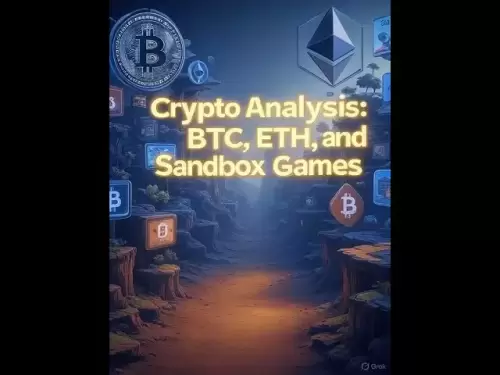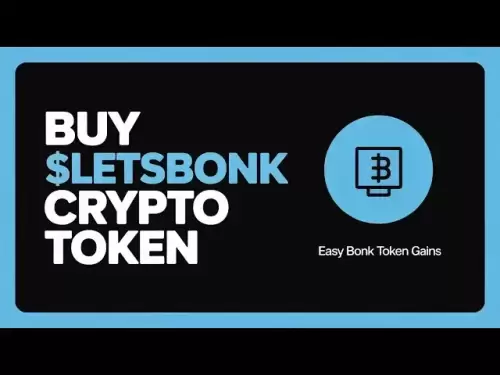-
 Bitcoin
Bitcoin $118100
-0.44% -
 Ethereum
Ethereum $3585
5.43% -
 XRP
XRP $3.434
5.65% -
 Tether USDt
Tether USDt $1.000
0.02% -
 BNB
BNB $743.8
3.89% -
 Solana
Solana $178.7
3.84% -
 USDC
USDC $1.000
0.03% -
 Dogecoin
Dogecoin $0.2381
12.81% -
 TRON
TRON $0.3270
3.62% -
 Cardano
Cardano $0.8315
4.93% -
 Hyperliquid
Hyperliquid $44.51
-4.42% -
 Stellar
Stellar $0.4710
1.52% -
 Sui
Sui $3.896
-2.51% -
 Chainlink
Chainlink $18.09
6.98% -
 Hedera
Hedera $0.2681
9.31% -
 Bitcoin Cash
Bitcoin Cash $516.7
4.83% -
 Avalanche
Avalanche $23.95
6.96% -
 Shiba Inu
Shiba Inu $0.00001490
5.67% -
 UNUS SED LEO
UNUS SED LEO $8.966
0.80% -
 Toncoin
Toncoin $3.294
4.39% -
 Litecoin
Litecoin $105.4
4.69% -
 Polkadot
Polkadot $4.356
5.30% -
 Uniswap
Uniswap $10.29
17.25% -
 Monero
Monero $327.9
-3.04% -
 Bitget Token
Bitget Token $4.942
4.33% -
 Ethena USDe
Ethena USDe $1.001
0.08% -
 Pepe
Pepe $0.00001348
2.17% -
 Dai
Dai $1.000
0.02% -
 Aave
Aave $320.8
0.58% -
 Bittensor
Bittensor $411.8
-4.07%
Can I mine crypto on a rented server?
Renting a server for crypto mining can be viable if the provider allows it and offers GPU support, but profitability depends on costs, efficiency, and compliance with policies.
Jul 12, 2025 at 07:21 am
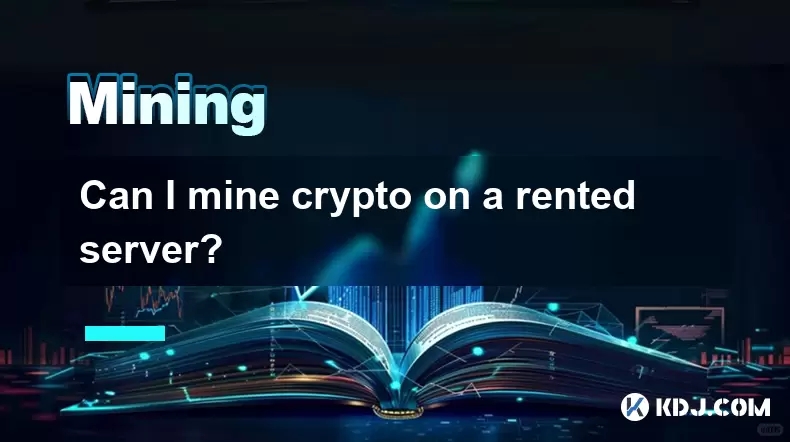
Understanding the Concept of Mining Crypto on a Rented Server
Mining cryptocurrency involves solving complex mathematical problems to validate transactions and add them to the blockchain. Traditionally, this process requires significant computational power, which is often achieved through high-performance hardware such as GPUs or ASICs. However, with the rise of cloud computing, many individuals are now exploring whether mining crypto on a rented server is a viable alternative.
A rented server typically refers to a virtual private server (VPS) or a dedicated physical machine leased from a hosting provider. These servers can offer scalable computing resources, making them an attractive option for those who want to mine without investing in expensive hardware.
Important:
Before proceeding, it's crucial to understand that not all servers are optimized for mining. Most VPS providers use CPUs rather than GPUs, which are less efficient for mining popular cryptocurrencies like Ethereum or Bitcoin.Legal and Policy Considerations
Before renting a server for mining purposes, you must review the terms of service provided by the hosting company. Many VPS providers explicitly prohibit cryptocurrency mining due to its resource-intensive nature. Violating these policies could lead to account suspension or even legal action.
Some companies allow mining but impose restrictions on the type of algorithms used or the amount of CPU/GPU usage permitted. It’s essential to confirm with your provider whether mining is allowed and under what conditions.
- Check the provider’s acceptable use policy.
- Inquire about GPU availability if you plan to mine altcoins.
- Ensure compliance with local laws regarding cryptocurrency mining.
Selecting the Right Server Configuration
If you find a provider that allows mining, the next step is choosing the appropriate server configuration. For effective mining, especially for proof-of-work cryptocurrencies, you need a server with high processing power and sufficient memory.
Most mining operations benefit significantly from GPUs. However, many standard VPS plans only provide CPUs. Therefore, look for providers offering GPU-based instances. Some cloud providers, like AWS and Google Cloud, offer GPU-enabled virtual machines that can be used for mining.
- Opt for a server with multiple GPU units if available.
- Ensure the server has enough RAM and SSD storage for mining software and blockchain data.
- Select a location close to mining pools to reduce latency.
Setting Up Mining Software on a Rented Server
Once you’ve chosen a suitable server, the next phase is installing mining software. The process varies depending on the cryptocurrency you intend to mine. For example, Ethereum mining requires different tools compared to Monero or Zcash.
Start by connecting to your server via SSH. Then, install necessary dependencies like CUDA drivers if using NVIDIA GPUs. Download the mining software compatible with your target coin and configure it with your wallet address and mining pool details.
- Update the server’s operating system before installing any software.
- Install the correct GPU drivers based on your hardware (NVIDIA or AMD).
- Download mining software such as Ethminer, Claymore, or XMRig.
- Configure the miner with your wallet address and mining pool URL.
Monitoring and Optimizing Mining Performance
After launching the mining process, it’s important to monitor performance regularly. Use tools like htop, nvidia-smi, or built-in mining software logs to check CPU/GPU usage, hash rate, and temperature levels.
Overheating and excessive resource consumption can lead to throttling or server instability. To avoid this, ensure proper cooling solutions are in place and consider tweaking mining parameters for better efficiency.
- Use monitoring tools to track real-time mining statistics.
- Adjust intensity and thread settings to optimize hash rates.
- Set up alerts for abnormal temperature spikes or downtime.
Frequently Asked Questions
Q: Can I mine Bitcoin on a rented server?
A: While technically possible, mining Bitcoin on a rented server is generally not profitable. Bitcoin uses SHA-256 hashing, which is most efficiently mined using ASIC hardware. Most rented servers lack ASIC support and are cost-ineffective for Bitcoin mining.
Q: Is cloud mining the same as renting a server for mining?
A: No. Cloud mining usually refers to purchasing hashing power from a third-party provider, whereas renting a server gives you full control over the mining setup. With a rented server, you manage the software, hardware, and configurations yourself.
Q: What are the costs involved in mining crypto on a rented server?
A: Costs depend on the server specifications and provider. Expect charges for hourly/daily/monthly rental, bandwidth usage, and potential GPU surcharges. Compare pricing across platforms like AWS, Google Cloud, or specialized mining VPS providers.
Q: How do I choose a mining pool when using a rented server?
A: Choose a pool with low fees, stable uptime, and compatibility with your mining software. Look for pools with servers located geographically close to your rented server to minimize latency and improve efficiency.
Disclaimer:info@kdj.com
The information provided is not trading advice. kdj.com does not assume any responsibility for any investments made based on the information provided in this article. Cryptocurrencies are highly volatile and it is highly recommended that you invest with caution after thorough research!
If you believe that the content used on this website infringes your copyright, please contact us immediately (info@kdj.com) and we will delete it promptly.
- Freedom Gold Pack: The Legacy Coin Defining 2025
- 2025-07-19 06:30:13
- Trump, the GENIUS Act, and Stablecoin Regulations: A New Era for Crypto?
- 2025-07-19 06:50:12
- Pi Network's Ecosystem Challenge: App Studio Sparks Innovation
- 2025-07-19 06:55:13
- Zebec Network's Bullish Engulfing Pattern: Price Forms and Future Outlook
- 2025-07-19 06:30:13
- XRP, Ripple, Bitcoin, Ethereum: Decoding the Crypto Landscape
- 2025-07-19 05:50:13
- Penny Altcoins Eyeing $1 in Q3 2025: Cardano, BlockchainFX, and the Hunt for Crypto Gold
- 2025-07-19 05:10:13
Related knowledge
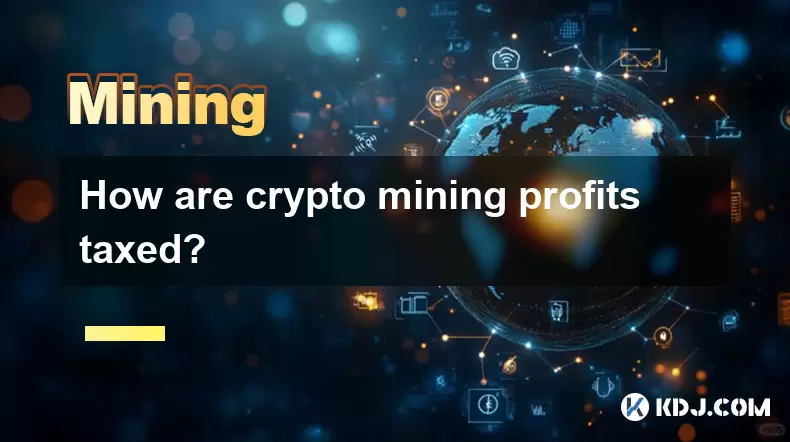
How are crypto mining profits taxed?
Jul 14,2025 at 12:28am
Understanding Cryptocurrency Mining and TaxationCryptocurrency mining involves validating transactions on a blockchain network and earning rewards in ...
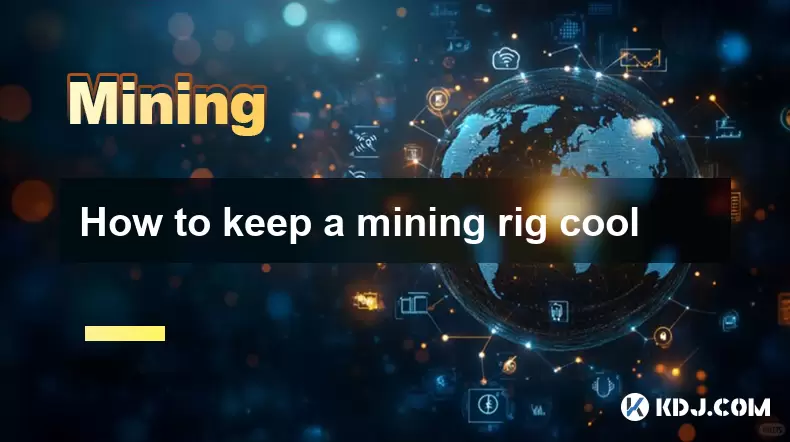
How to keep a mining rig cool
Jul 12,2025 at 01:42pm
Understanding the Importance of Cooling in Mining RigsCryptocurrency mining is an intensive process that places heavy demand on hardware components, p...
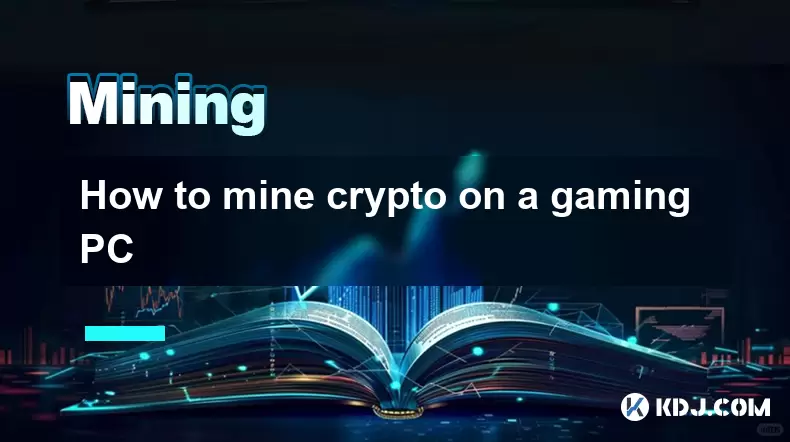
How to mine crypto on a gaming PC
Jul 16,2025 at 12:00pm
What is Crypto Mining on a Gaming PC?Crypto mining involves using your computer's processing power to validate transactions on a blockchain network. A...
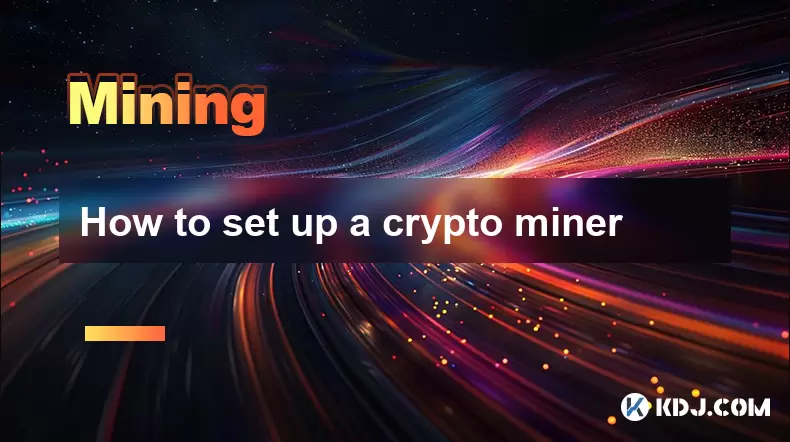
How to set up a crypto miner
Jul 16,2025 at 09:14am
Understanding Ethereum Gas Fees: What Are They and How Do They Work?Ethereum gas fees are a fundamental aspect of the network, representing the cost r...
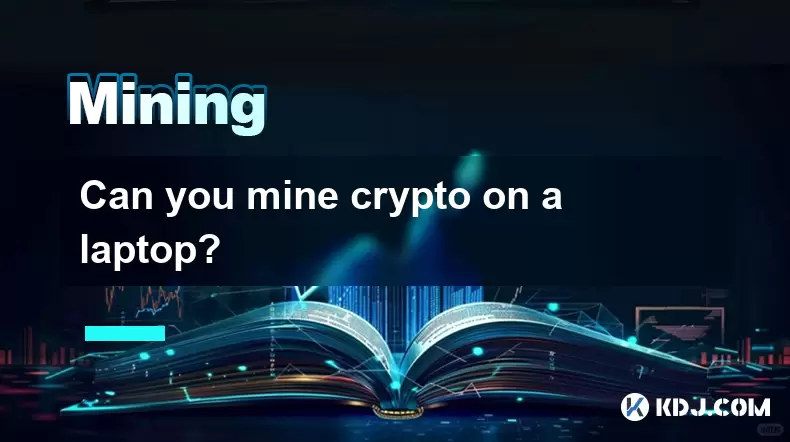
Can you mine crypto on a laptop?
Jul 16,2025 at 02:21am
Is It Feasible to Mine Cryptocurrency on a Laptop?Mining cryptocurrency on a laptop is technically possible, but feasibility depends heavily on the ha...
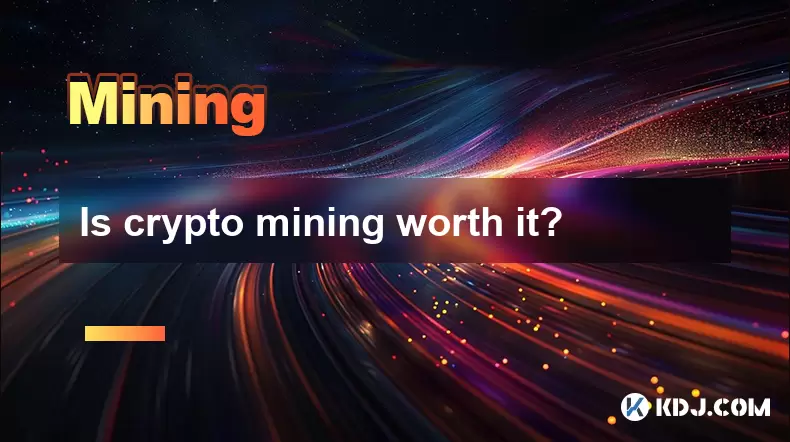
Is crypto mining worth it?
Jul 16,2025 at 01:21am
Understanding the Basics of Crypto MiningCrypto mining refers to the process of validating transactions on a blockchain network by solving complex mat...

How are crypto mining profits taxed?
Jul 14,2025 at 12:28am
Understanding Cryptocurrency Mining and TaxationCryptocurrency mining involves validating transactions on a blockchain network and earning rewards in ...

How to keep a mining rig cool
Jul 12,2025 at 01:42pm
Understanding the Importance of Cooling in Mining RigsCryptocurrency mining is an intensive process that places heavy demand on hardware components, p...

How to mine crypto on a gaming PC
Jul 16,2025 at 12:00pm
What is Crypto Mining on a Gaming PC?Crypto mining involves using your computer's processing power to validate transactions on a blockchain network. A...

How to set up a crypto miner
Jul 16,2025 at 09:14am
Understanding Ethereum Gas Fees: What Are They and How Do They Work?Ethereum gas fees are a fundamental aspect of the network, representing the cost r...

Can you mine crypto on a laptop?
Jul 16,2025 at 02:21am
Is It Feasible to Mine Cryptocurrency on a Laptop?Mining cryptocurrency on a laptop is technically possible, but feasibility depends heavily on the ha...

Is crypto mining worth it?
Jul 16,2025 at 01:21am
Understanding the Basics of Crypto MiningCrypto mining refers to the process of validating transactions on a blockchain network by solving complex mat...
See all articles
























